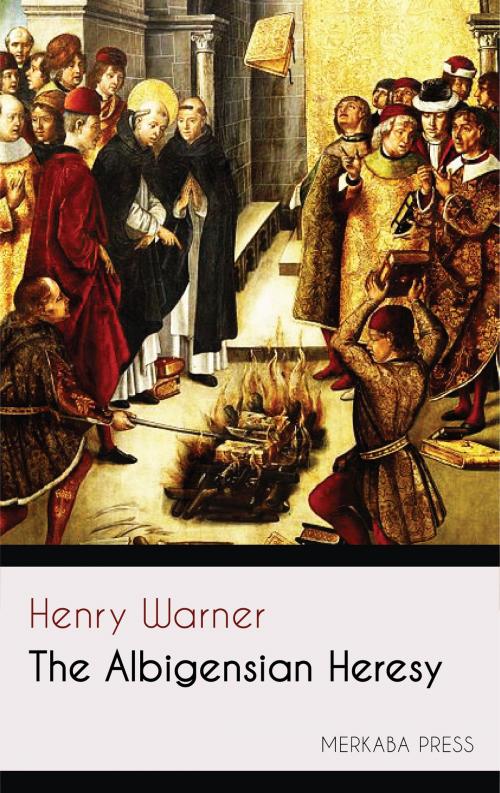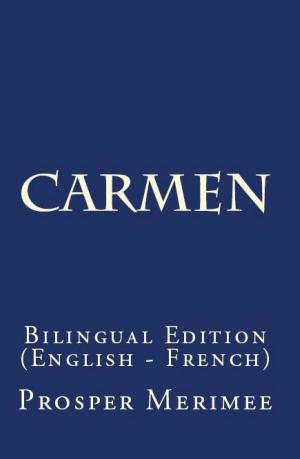| Author: | Henry Warner | ISBN: | 6610000026494 |
| Publisher: | PublishDrive | Publication: | August 7, 2017 |
| Imprint: | Merkaba Press | Language: | English |
| Author: | Henry Warner |
| ISBN: | 6610000026494 |
| Publisher: | PublishDrive |
| Publication: | August 7, 2017 |
| Imprint: | Merkaba Press |
| Language: | English |
THE interest and importance of the so-called Albigensian Heresy lie in the fact that while it bears "a local habitation and a name," its actual habitation was not local, and its name is misleading. Its origin must be traced back to pre-Christian Ages, and its fruits will remain for ages to come. Its current title is inexact and incomplete; inexact, because Albi was not the fons et origo of a movement which, although it took deepest root in Southern France, was sporadic throughout Central and Western Europe; incomplete, because the movement was not one heresy, but many, defying rigid classification, heterogeneous, self-contradictory, yet united in opposition to the Church of Rome. It is a mere accident of history that the name is derived from Albi, for Albi was but one, and that by no means the most important town infected. The storm-centre was the great city of Toulouse, which Peter de Vaux-Sarnai describes as "Tolosa, tota dolosa," being, as he adds, seldom or never from its foundation free from heresy, fathers handing it on to their sons. The impact came at a time when the Church of Rome was putting forth all its power to extend its spiritual supremacy northward, and the Kingdom of France its territorial domains southward, and it suited their respective interests to unite their forces in a home-crusade against Southern France. Between the upper and nether millstones the body was crushed, but "its soul goes marching on." Its enemies declared it to be rank paganism (Manicheism): its adherents the purest form of Christianity (Catharism). An impartial investigation will, we think, show that neither claim can be substantiated. Impartiality, however, is not easily preserved. Most of the documentary evidence which has come down to us is biassed. The Church considered it its sacred duty to destroy all heretical literature as pestiferous: the heretics, equally, the archives of the early inquisitions, whenever they fell into their hands in their few military successes, on the ground that they were dangerous to their members and distortive of their doctrines. "No person," observes Francis Palgrave in his "History of the Anglo-Saxons," "ever can attempt any historical inquiry who does not bring some favourite dogma of his own to the task—some principle which he wishes to support—some position which he is anxious to illustrate or defend, and it is quite useless to lament these tendencies to partiality, since they are the very incitements to labour." It is because this is true of many who, with political and ecclesiastical predilections, have sought to confirm them by this controversy, that a fresh endeavour should be made to get at the facts of the case. On the one hand we must avoid reading into Homer what Homer never knew. On the other hand we must carefully precipitate the prose which is in solution in the poetry, and separate historical fact from fanatical fiction
THE interest and importance of the so-called Albigensian Heresy lie in the fact that while it bears "a local habitation and a name," its actual habitation was not local, and its name is misleading. Its origin must be traced back to pre-Christian Ages, and its fruits will remain for ages to come. Its current title is inexact and incomplete; inexact, because Albi was not the fons et origo of a movement which, although it took deepest root in Southern France, was sporadic throughout Central and Western Europe; incomplete, because the movement was not one heresy, but many, defying rigid classification, heterogeneous, self-contradictory, yet united in opposition to the Church of Rome. It is a mere accident of history that the name is derived from Albi, for Albi was but one, and that by no means the most important town infected. The storm-centre was the great city of Toulouse, which Peter de Vaux-Sarnai describes as "Tolosa, tota dolosa," being, as he adds, seldom or never from its foundation free from heresy, fathers handing it on to their sons. The impact came at a time when the Church of Rome was putting forth all its power to extend its spiritual supremacy northward, and the Kingdom of France its territorial domains southward, and it suited their respective interests to unite their forces in a home-crusade against Southern France. Between the upper and nether millstones the body was crushed, but "its soul goes marching on." Its enemies declared it to be rank paganism (Manicheism): its adherents the purest form of Christianity (Catharism). An impartial investigation will, we think, show that neither claim can be substantiated. Impartiality, however, is not easily preserved. Most of the documentary evidence which has come down to us is biassed. The Church considered it its sacred duty to destroy all heretical literature as pestiferous: the heretics, equally, the archives of the early inquisitions, whenever they fell into their hands in their few military successes, on the ground that they were dangerous to their members and distortive of their doctrines. "No person," observes Francis Palgrave in his "History of the Anglo-Saxons," "ever can attempt any historical inquiry who does not bring some favourite dogma of his own to the task—some principle which he wishes to support—some position which he is anxious to illustrate or defend, and it is quite useless to lament these tendencies to partiality, since they are the very incitements to labour." It is because this is true of many who, with political and ecclesiastical predilections, have sought to confirm them by this controversy, that a fresh endeavour should be made to get at the facts of the case. On the one hand we must avoid reading into Homer what Homer never knew. On the other hand we must carefully precipitate the prose which is in solution in the poetry, and separate historical fact from fanatical fiction















